Logan Botanic: 50 years of 'Scotland's most exotic garden'
- Published
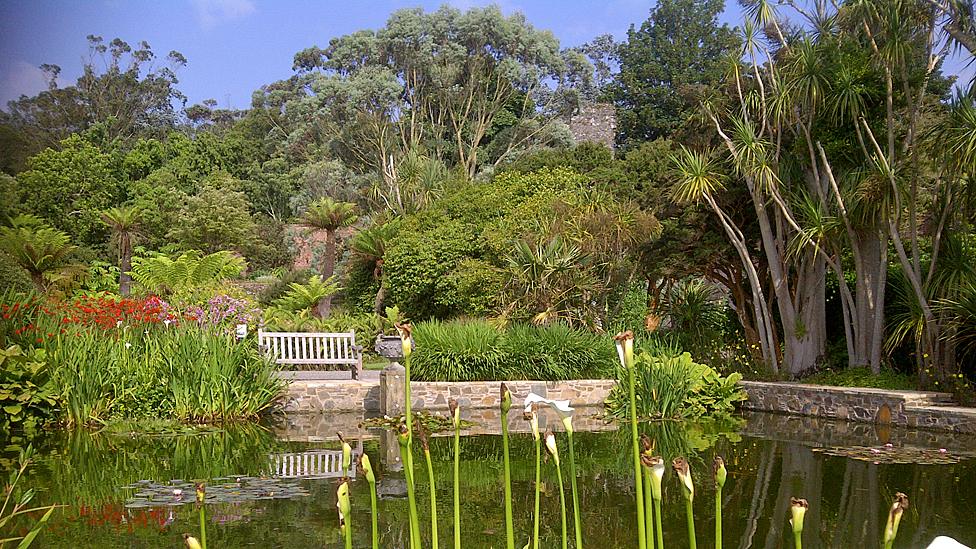
The garden in south west Scotland is home to hundreds of species - many of them threatened with extinction
A garden in Galloway described as Scotland's "most exotic" is celebrating a special landmark.
It is 50 years since Logan Botanic Garden at Port Logan became part of the Royal Botanic Garden Edinburgh (RBGE).
Warmed by the Gulf Stream the site in south west Scotland is "ablaze with colour throughout the season".
Curator Richard Baines said the garden had "come a long way" and now enjoyed an "international reputation" as a "must-visit tourist destination".
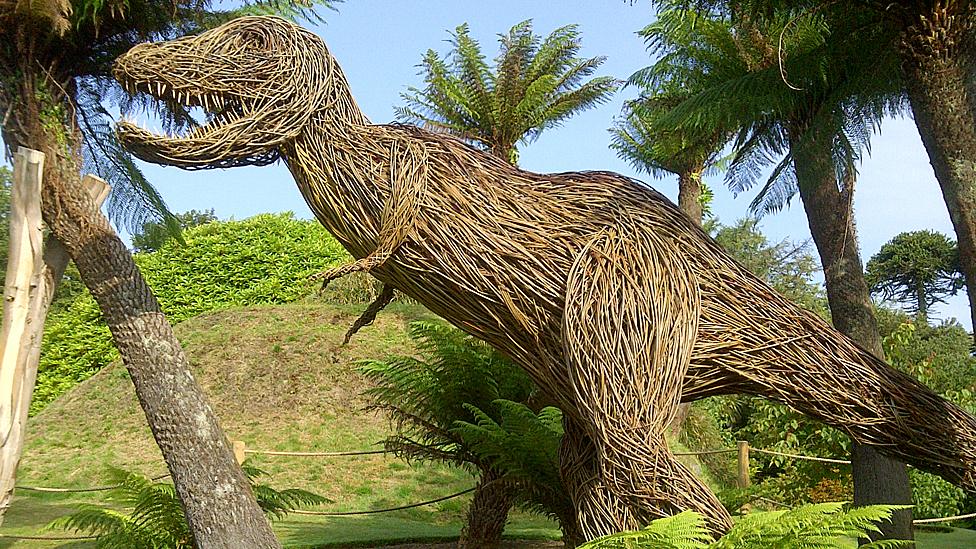
A dinosaur willow sculpture has been installed at Logan as part of the celebrations
He described the site south of Stranraer as "mainly a walled garden" when it was taken over back in 1969.
However, he said the "dedication and passion" of those overseeing the collections had led to many species being grown at Logan which were "rarely observed growing outdoors in the UK".
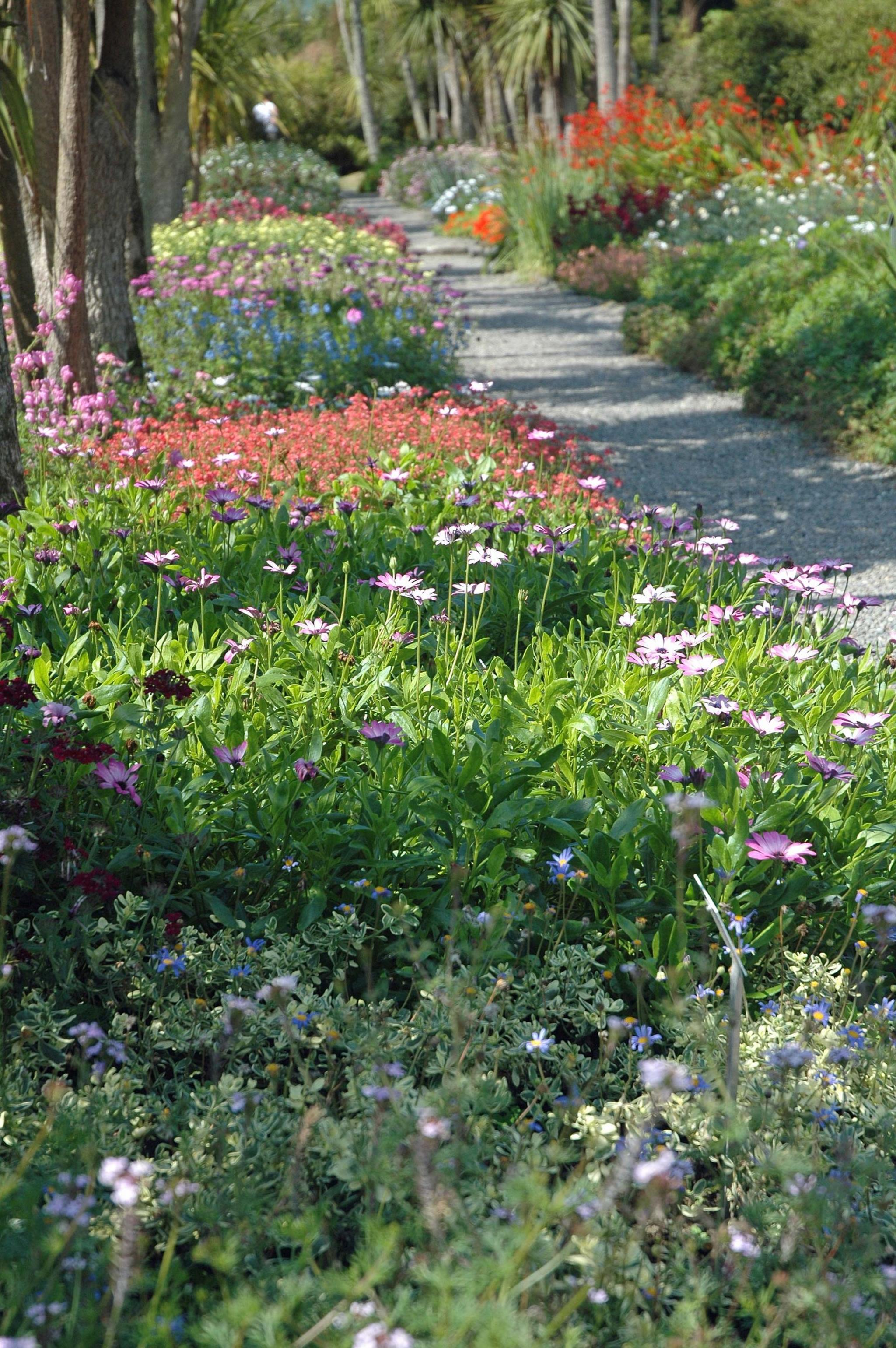
The garden is described as "ablaze with colour throughout the season"

A day of celebration is being held to mark the move into the care of RBGE.
It has been able to provide "expertise, dedication, funds and plants" for the south west Scotland site over the years.
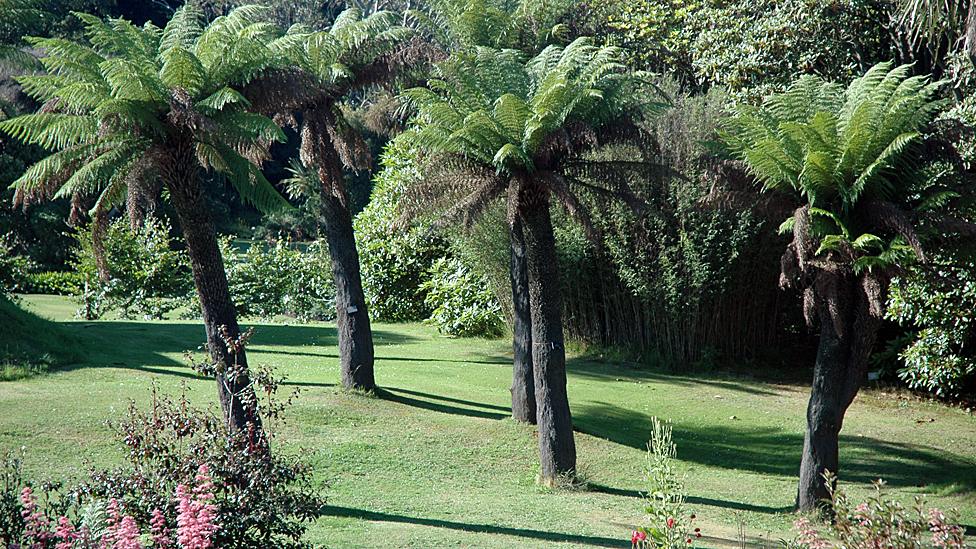
The warmth of the Gulf Stream allows many species to grow which would not flourish elsewhere
The garden is now home to 120 species that are threatened with extinction out of about 2,500 species in total.
Its curator said they were already planning how to increase those numbers in years to come.
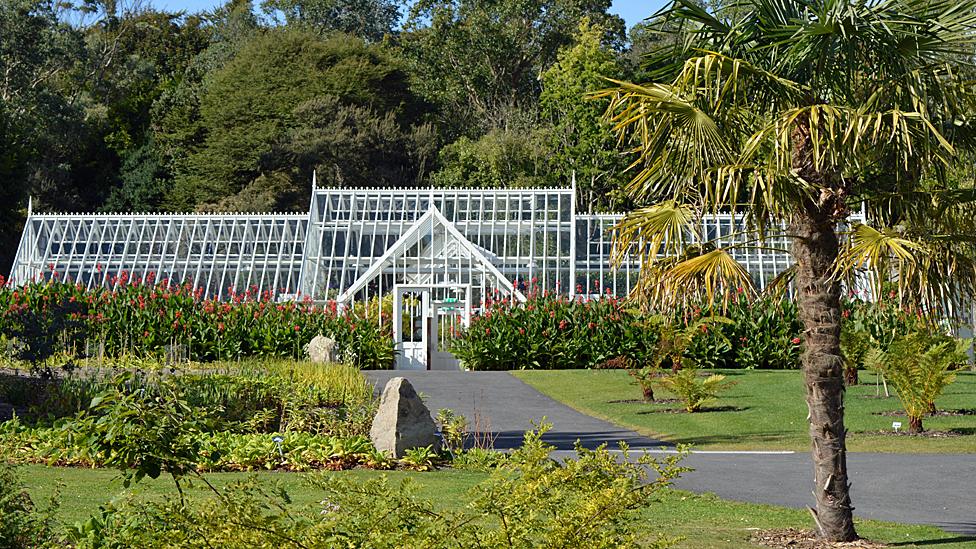
The benefits of planting now will be seen in 20 or 30 years time
"In the last 10 years the number of species in the garden has risen by 25%," Mr Baines told the BBC.
"It is an incredible evolution of the garden and an increase in number - mainly plants coming in from Australasia, Vietnam and South America, mainly Chile.
"We are really doing a lot of planting and the rewards of this planting now will be reaped in the next 20 to 30 years once plants settle in."
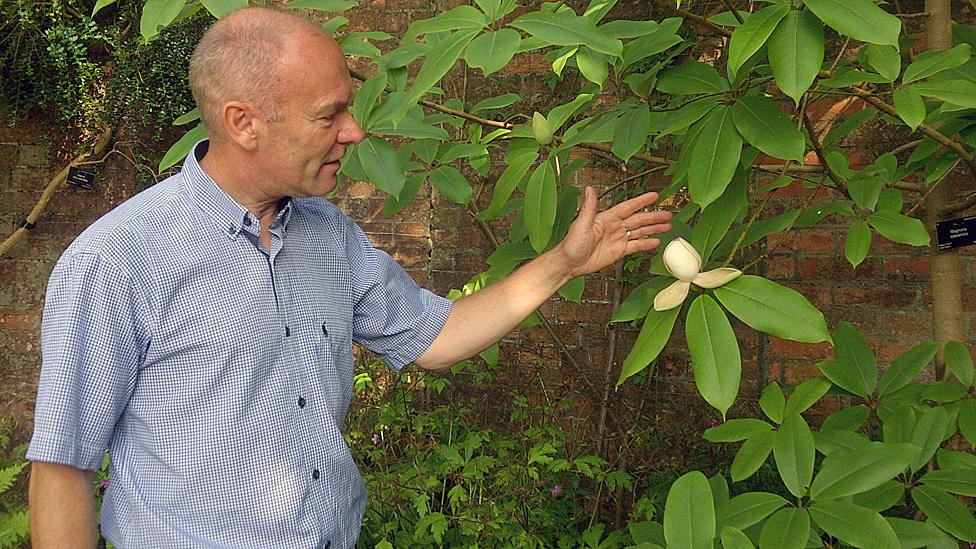
Mr Baines admires the first ever flowering in Scotland of Magnolia sapaensis from Vietnam
However, he said that weather trends were starting to have an impact on their work.
"Times are changing, our climate is changing - that is presenting opportunities, so we can grow new species which we have never grown before," he said.
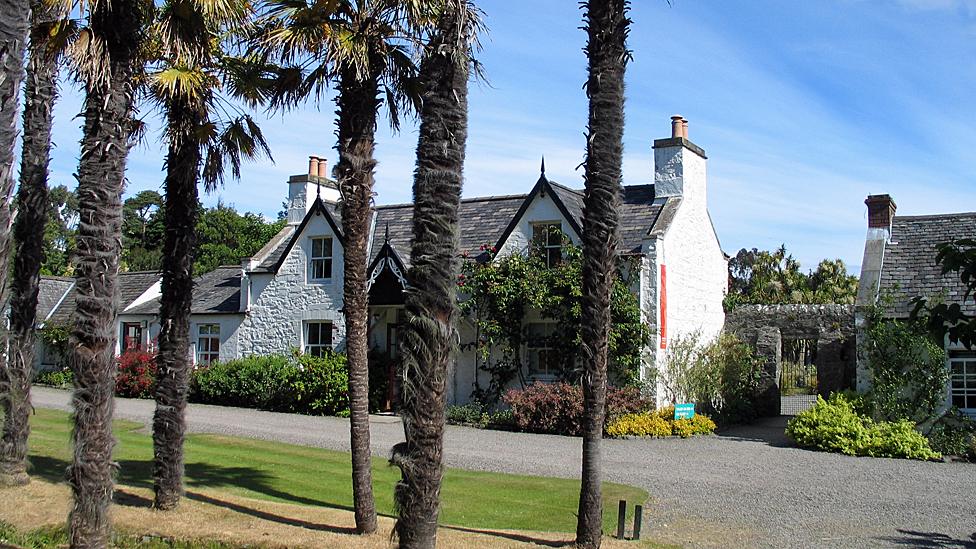
Plans are in place for a new visitor centre at the garden
He said there were also challenges due to changes in the amount of rainfall and the number of pests and diseases they faced.
Nonetheless, he said they had plans to "grow the garden" in terms of staff and developing a new visitor centre in the years to come.
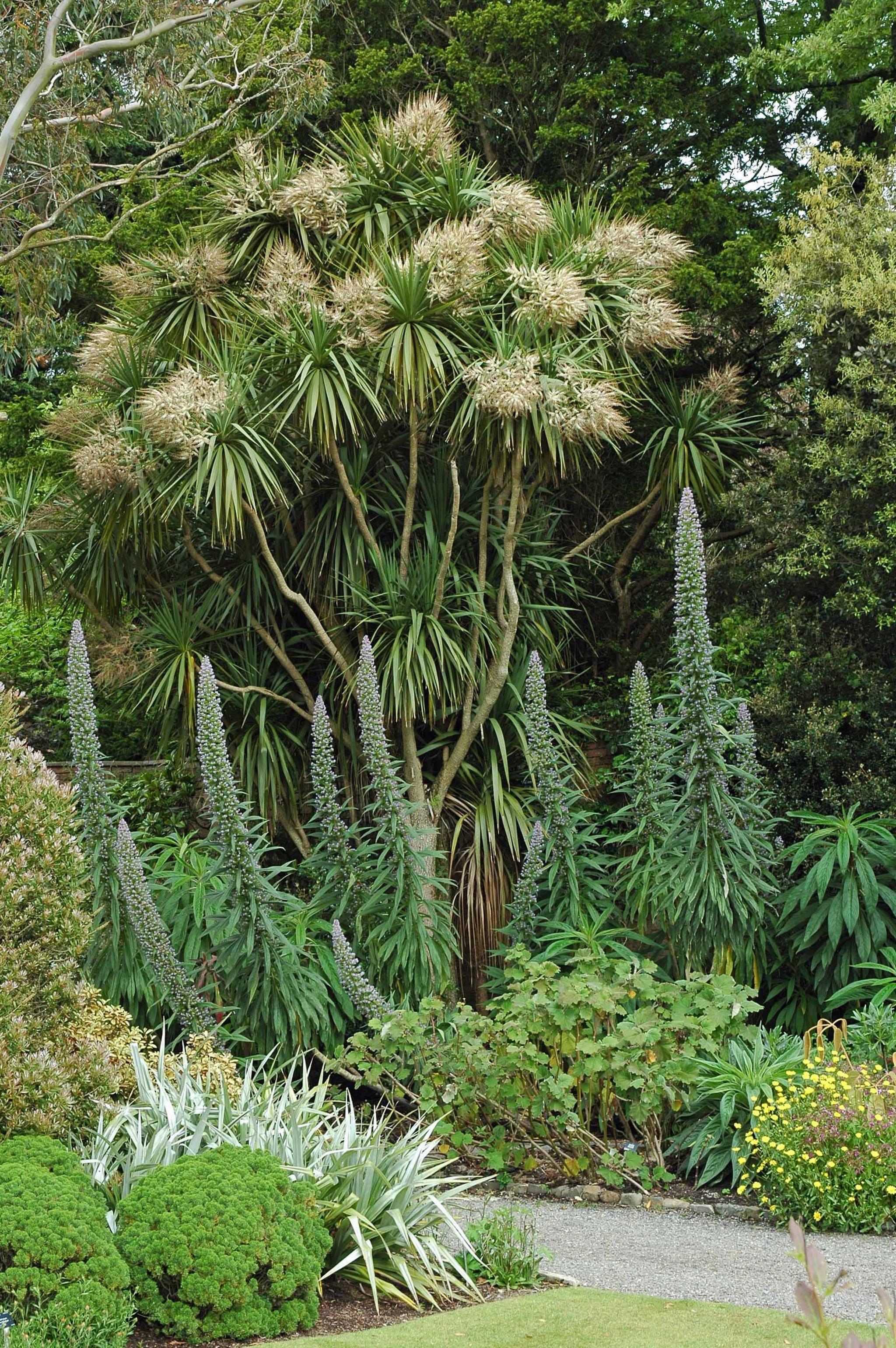
A day of celebration is taking place to mark the anniversary

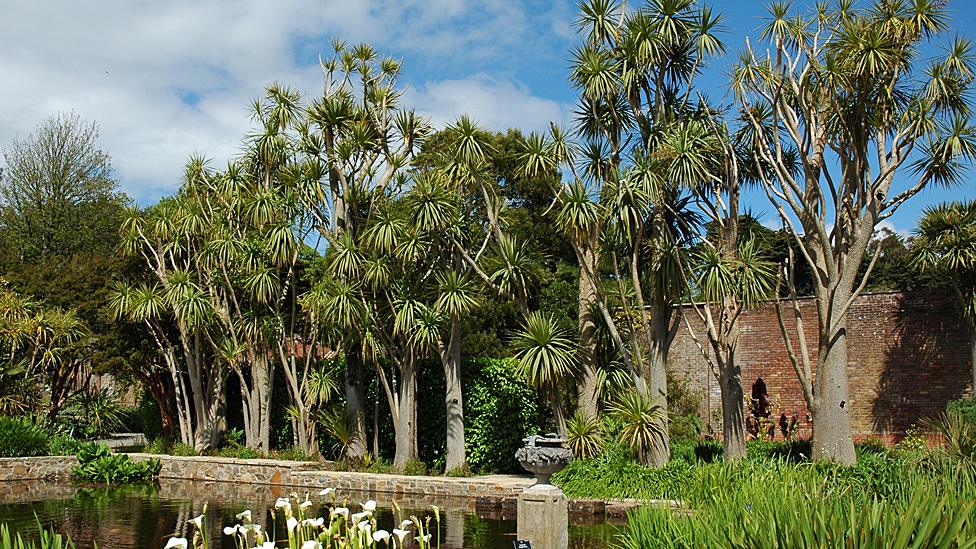
The site started out as a "walled garden" and has grown in scale since 1969
All images are copyrighted.